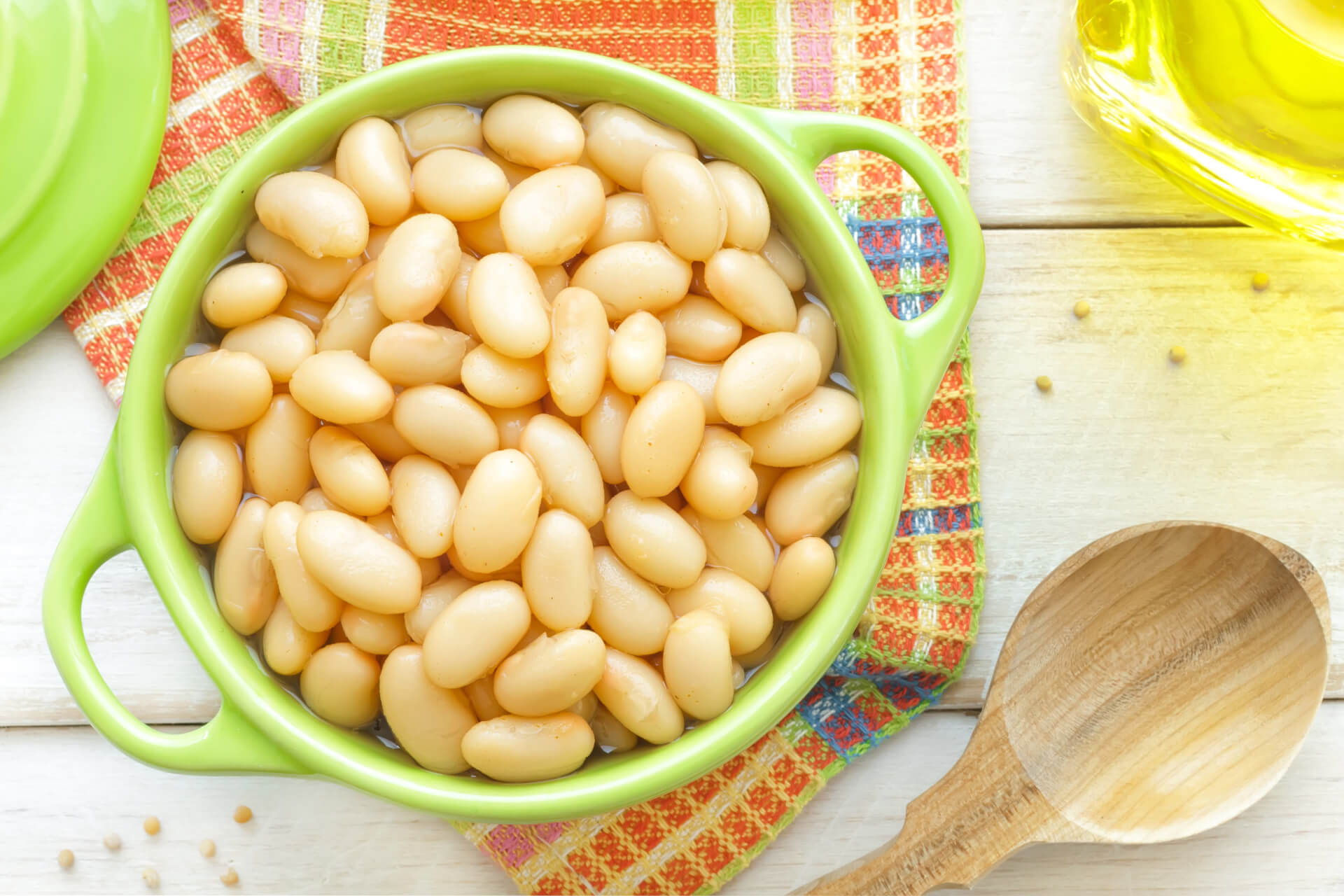
White beans are more than just a pantry staple; they pack a punch of nutrition and versatility. Ever wondered why these legumes are a favorite in many kitchens? White beans are rich in protein, fiber, and essential vitamins, making them a powerhouse for your diet. They come in several varieties, including navy beans, cannellini beans, and great northern beans, each with unique textures and flavors. Whether you're whipping up a hearty soup, a creamy dip, or a savory stew, white beans can elevate your dish. Ready to learn more? Let's dive into 25 fascinating facts about these humble yet mighty beans!
Key Takeaways:
- White beans, also known as navy beans, are a nutritional powerhouse packed with protein, fiber, and essential vitamins and minerals. They support heart health, aid in weight loss, and have a rich historical background.
- White beans are versatile and can be used in soups, salads, purees, and even baked dishes. They have a rich history dating back to ancient civilizations and were even included in early space missions' food supplies.
25 Facts About White Beans
White beans, also known as navy beans, are small, oval-shaped legumes that pack a nutritional punch. They are a staple in many cuisines around the world. Here are some fascinating facts about these versatile beans.
Nutritional Powerhouse
White beans are loaded with nutrients that benefit your health in numerous ways.
- High in Protein: White beans are an excellent source of plant-based protein, making them a great option for vegetarians and vegans.
- Rich in Fiber: They contain a significant amount of dietary fiber, which aids in digestion and helps maintain a healthy gut.
- Low in Fat: These beans are low in fat, making them a heart-healthy food choice.
- Packed with Vitamins: White beans are rich in vitamins like B1 (thiamine), which is essential for energy production and brain function.
- Mineral-Rich: They provide essential minerals such as iron, magnesium, and potassium, which are crucial for various bodily functions.
Health Benefits
Consuming white beans can have several positive effects on your health.
- Supports Heart Health: The high fiber content helps lower cholesterol levels, reducing the risk of heart disease.
- Regulates Blood Sugar: White beans have a low glycemic index, which helps in managing blood sugar levels.
- Aids Weight Loss: The fiber and protein content can help you feel full longer, aiding in weight management.
- Boosts Energy: The iron in white beans helps transport oxygen throughout the body, boosting energy levels.
- Improves Bone Health: Magnesium and calcium in white beans contribute to stronger bones.
Culinary Uses
White beans are incredibly versatile and can be used in a variety of dishes.
- Soups and Stews: They are a common ingredient in hearty soups and stews, adding both texture and nutrition.
- Salads: White beans can be tossed into salads for an extra protein boost.
- Purees and Dips: They can be blended into smooth purees or dips, similar to hummus.
- Baked Dishes: White beans can be baked into casseroles or even used in baking recipes like bean brownies.
- Pasta Dishes: They pair well with pasta, adding a creamy texture without the need for dairy.
Historical Facts
White beans have a rich history that spans centuries.
- Ancient Cultivation: White beans have been cultivated for thousands of years, dating back to ancient civilizations.
- Native to the Americas: They originated in the Americas and were a staple food for Native American tribes.
- European Introduction: Spanish explorers introduced white beans to Europe in the 16th century.
- Civil War Rations: During the American Civil War, white beans were a common ration for soldiers due to their long shelf life and nutritional value.
- Symbol of Prosperity: In some cultures, white beans are considered a symbol of prosperity and good luck.
Fun Facts
Here are some interesting tidbits about white beans that you might not know.
- Different Names: White beans are also known as navy beans, haricot beans, and Boston beans.
- Used in Baked Beans: They are the primary ingredient in traditional baked beans.
- NASA Food: White beans were included in the food supplies for astronauts on early space missions.
- Eco-Friendly Crop: They are a sustainable crop, requiring less water and fertilizer compared to other legumes.
- Versatile Texture: White beans can be cooked to a creamy consistency or left slightly firm, depending on the dish.
Final Thoughts on White Beans
White beans pack a punch when it comes to nutrition and versatility. These legumes are loaded with fiber, protein, and essential vitamins. They can help manage blood sugar levels, support heart health, and even aid in weight loss. Whether you toss them in a salad, blend them into a soup, or use them as a base for a dip, white beans are a fantastic addition to any meal. Plus, they’re budget-friendly and easy to store. Next time you’re at the grocery store, grab a can or bag of white beans and experiment with new recipes. You might be surprised at how delicious and satisfying they can be. So, go ahead and give white beans a try—you won’t regret it!
Frequently Asked Questions
Was this page helpful?
Our commitment to delivering trustworthy and engaging content is at the heart of what we do. Each fact on our site is contributed by real users like you, bringing a wealth of diverse insights and information. To ensure the highest standards of accuracy and reliability, our dedicated editors meticulously review each submission. This process guarantees that the facts we share are not only fascinating but also credible. Trust in our commitment to quality and authenticity as you explore and learn with us.


